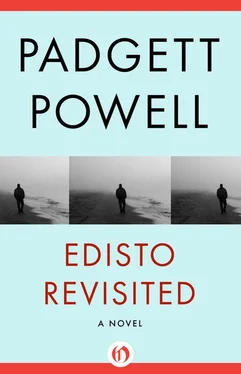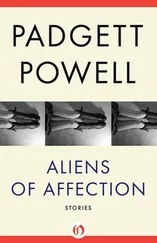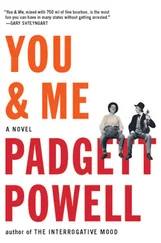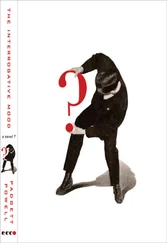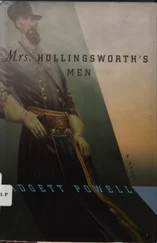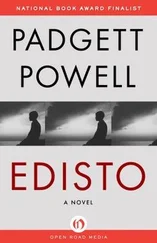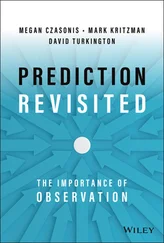I started laughing and she did, too.
“Aunt Sasa,” I said. “Tell you what. Would you, ah, tell Patricia to meet me in Edisto?”
“In Edisto ,” she said, with several kinds of false shock in her tone. What for? After you left her there? Why should she? Etc. I could only assume she knew the circumstances, but it was the kind of thing, also, where she might just be gratuitously saying “In Ed isto?” In Af rica? In O hi o? In the yard ? Out side ?
“At the house,” I said. “There is a key in the A/C compressor. I will be there in three days.”
My aunt said then, gravely, “I have never gotten a thing I wanted from this family.”
“I can’t stand it, either, Aunt Sasa.”
“I hope,” she said, taking another ice-clunking gulp of something, “you get what you want. Bye.”
I held that ambiguous phone in the air in the Flamingo Bar & Grill for a moment, wondering if it meant she’d tell Patricia or would not tell Patricia, and put it down finally, worried suddenly about the imaginary-conversation prohibition. I’d had a most real conversation, but no one would believe it.
JAKE’S LOOKED CLOSED, SO I did not stop. It would have been nice to lay in a trunkful of provisions against Patricia’s absence or presence — this was going to be a trek either way. The joint (Jake’s) looked abandoned in the way that only the truly bereft business can: the only difference between its countenance when closed and when doing business hand over fist is a padlock on the door. With his bank-vault door he didn’t need a padlock. Somewhere behind it Jake lived, either in the room behind and above the bar or in the house out back where his mother had lived. It was a shack covered in rolled linoleum brick siding, or possibly the stuff was composition asphalt; it had never occurred to me to feel it once I understood it wasn’t brick. Was there, or should there be, anything particularly telling about a people who would have wood houses look like brick and Cadillacs that look like giant June bugs? I trusted, prowling by Jake’s and easing into our road, that I weren’t going into racial mope. I had done enough of that as a child.
I had other fish to fry. At best I had a house with a madwoman with Thoroughbred legs who could swim the English Channel in it whom I thought I wanted. In this time I had formed a specific portrait of Patricia Hod, for which I longed: a quiet woman with troubles aplenty at home and abroad that you found in your bed accepting not simply you but your mother’s steerage of you into that bed (and your mother’s face in yours) and the new set of problems you brought with you. A woman who took it as it came, with (I had come to appreciate) no lip-biting apprehensiveness. She breathed, as it were, through her mouth. What was Patricia Hod? Patricia Hod was a girl from God. That’s what, or who, Patricia Hod was. It is true that I felt a little bogused by my recent endeavors, in which there had been enough booze alone to account for my feeling like a fish on its side, flaring its gills and with its one fixed eye looking at the world and its grim chances. Suffice it to say I entered the tunnel of palmetto leading to my mother’s quaint and now vintage, once splendid and now modest beach house feeling perhaps not dissimilar to that fish. I was also feeling poetic. It felt — things — as if it was about to rain. It was a Monday, as near as I could make out, a rural Monday of the sort that you could tell it wasn’t Sunday by the absence of church traffic but you could not be sure if it was Monday because of the absence of work traffic. It was a stillborn Monday giving you the post-church, agreeable creeps. All I could ever think of on these kinds of mornings was that if I had to make a living, which inexplicably presented at these moments the idea of driving to a factory-line position in Pittsburgh, I’d know it was Monday morning, and it was infinitely better to be simply driving by neutron-bombed Jake’s Baby Grand and the whole gassed low country and g uessing it was Monday. The palmettos had a stilled, expectant edge to them, too, and the house sat plainly where it was supposed to. No car.
That I took to be that. It was a disappointment surprising in its force. Why Patricia Hod meant this much to me I could not have said. The deliberate not saying before, during our little month’s halcyon, accounted, though, for part of the force now that the cat, as it were, was out of the bag. I was holding a bag of sorts. It was empty. The house looked stolid, the beach brave, the surf as fine and brutal, as gentle and seductive, as … as it always does. I couldn’t stand this aloneness. I could not recall suffering it like this before. It brought the Southern Historian to mind: Maybe he was inexplicably, irrepressibly lonely, too, and that is why if you put cameras on him in his study and told him to tell apocrypha about, say, Custer, he wept. “The Wawer! The Wawer!” really meant “I’m lonely! Don’t you … Yankees ever get lonely ? No, of course you don’t. Y’all have never … lost !”
I went back up to Jake’s and marched around back to the old house where I didn’t know for sure he was staying but which I wanted to see. It had none of the fake-brick siding I’d remembered but looked vaguely creosoted and vaguely painted brightly about the windows — some Mediterranean blue had chipped down to some white, or off-white, giving the window trim the look of china. Beside the house, where the dog that I diagnosed as having mice in his ears (a remark that charmed two generations of militant slave descendants into liking this unmilitant slave-owner descendant) had been chained, was that dog’s rear axle, driven into the ground, and on the axle the chain the dog had worn in its constant prowl and yelp and circling for release until it had been released, forever. That bulldog got its Patricia Hod, I thought, standing there beside Jake’s shack, and took a leak. Don’t forget, you’re an architect came the next thought, so improbably that I looked over my head to see if there were an absurd balloon above it. What I saw was Jake’s face studying me from a window of the house.
“What the fuck?” he said.
“Jake!”
“Peein’ on the house!”
“No. Just here, Jake.” I took a step away so he could see my lack of harm. I should have told him an architect would never pee on a house.
“Allreetden,” Jake said.
As protocol suggested, I waited for Jake to come out. I looked in the dog’s excavated hole — it looked like an old Confederate earthwork, come to think about it — to make sure nothing of mine had run in it, which at that moment seemed a worse profanation than peeing on the house. It hadn’t. The urine would have stood in that dry bowl like spit on face powder. I remembered clearly at that moment my having as a child spit on the Doctor’s face powder. It would roll harmlessly around and you could pour it off. Perhaps I was mistaking it for shoe polish, her powder, in tins and cakes like the old man’s pucks of Kiwi wax that you were supposed to spit on—
“What you doin’ heah?”
“Supposed be a woman at my house and they ain’t.”
He took a long look at me and then beyond me toward the Grand, as if looking for others, whether for help or for a compounding of this trouble I couldn’t say.
“So what,” he said, very distinctly, “is the prob-lem?”
“I don’t know.”
“Spose be a woman at all our house and ain’t.”
“I know that,” I said, and it almost made us both laugh.
“So why you up here peein’ on my house what I want to know.”
Читать дальше
